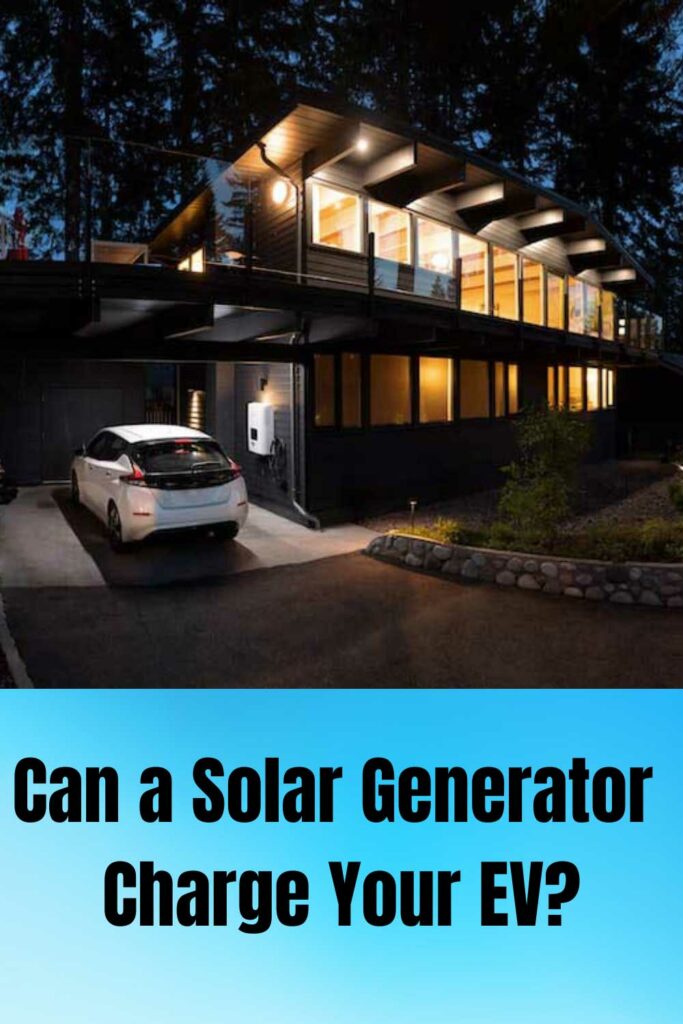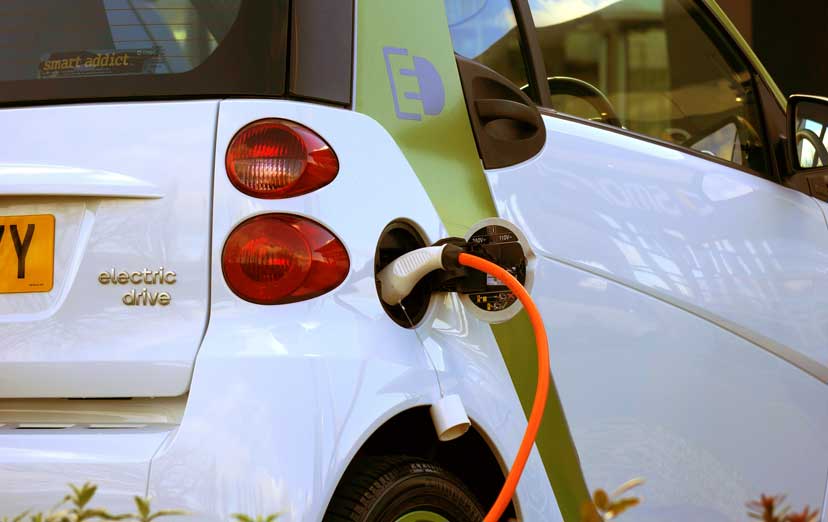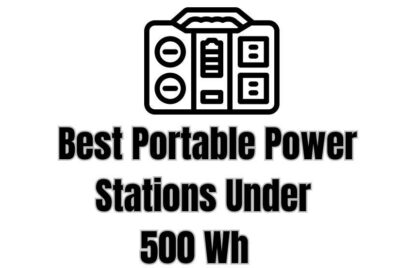Empowering Your Ride: Can Solar Generators Charge Your EV?
I may earn a commission for purchases made through my links. It helps me run this site. Check out my disclosure for more details.
Understanding electric vehicles (EVs) involves more than just admiring their sleek designs and silent, swift rides. It’s about grasping their unique charging needs. After all, a vehicle that runs on electricity rather than fossil fuels must charge efficiently, right? But how does solar energy fit into this equation? Furthermore, can a solar generator charge an EV? Let’s explore.
Understanding EV Charging Needs
I have an admission to make which may seem contradictory. I am a speed head. I love fast cars. So you would assume I’m a gas guzzler, but I tell you not. Electric vehicles have one thing over traditional gas fuelled engines. As soon as you put your foot down on the pedal the power transfer is instantaneous. No waiting for the turbo to kick in. And for those who love the thrill of instantaneous acceleration this is wonderful.
I can tell you though that charging an electric vehicle is not like charging your mobile phone. EVs require substantial energy, and the time it takes to charge them can range from an hour to a whole day, depending on the charger type and the vehicle’s battery capacity. Sounds like a challenge, doesn’t it?
Can A Solar Generator Power An EV?
To cut to the chase and put in a huge spoiler the answer is yes. But not for very long. They will give you maybe 5 mins of run time, so they maybe are a good emergency source to store in your car, albeit a heavy one if you want to get the longest possible mileage you’ll need a heavy solar generator.
Electric cars are currently very heavy anyway, a Tesla can weigh almost 5000 pounds, so an extra 60-90 for a large solar generator won’t make that much difference in that respect. Tesla’s are so heavy because the ithium-ion batteries weigh over 1,200 pounds (around 540 kg).
Regenerative braking adds additional weight. Regenerative braking converts kinetic energy back into stored energy in the battery when the vehicle decelerates. Luxury addons and soundproofing also add to the bulk as does structural reinforcements to protect the battery pack. Elon wouldn’t want those batteries to go boom would he? He’d be out of business in a heartbeat.
But that’s not the main reason solar gets a hiding when it comes to powering up an electric vehicle…
There is just no easy way to charge up an EV with solar panels because its currently very difficult to raise enough DC current to transfer into the Evs battery.
Solar Generators and Their Capabilities
Solar generators are a versatile and eco-friendly power solution. These devices convert solar energy into electricity, storing it in a battery for future use. And yes, in theory they can indeed charge EVs. But sadly they won’t give you a massive run time, and like EV chargers, not all solar generators are created equal. Indeed major brands like Jackery advise you not to charge your EV with them.
How to Choose the Right Solar Generator for Your EV
But if you where to try it out for yourself you need to hit a few percentiles.
To find the right solar generator for your EV you need to focus in on its power output, battery capacity, portability, and price point. It’s crucial to strike a balance that caters to your requirements without overstretching your budget, which let’s face it needs to be high if you want to juice up your Tesla.
So for this to work you have to make a careful examination of your EV’s power needs, your usage frequency, and your expected charging locations.
Unfortunately all these factors will be quite high, as will the price point.
Introducing Notable Solar Generator Brands
When it comes to solar generators, there are a few brands that stand out from the crowd. First up is EcoFlow.
EcoFlow
When we talk about solar generators, EcoFlow is a brand that shines brightly. Their Delta Pro model is an absolute powerhouse, making it a contender for charging EVs. It boasts a massive 3600W power output, which can peak at 7200W.
The Delta Pro also incorporates advanced features like the X-Boost technology, allowing the generator to power devices that require up to 3300W. This, along with the fast AC Transfer, makes the Delta Pro not just a solar generator, but a reliable home energy storage solution.
The Delta Pro also comes with a colossal battery capacity of 3.6 kWh, which can be extended up to 25 kWh with extra battery modules, effectively making it a home power station. With such power and storage, it deserves the right to a shot at the EV heavyweight charging title.
Jackery
Jackery, a brand renowned for its innovative and reliable portable power stations, makes its mark in the solar generator space with models like the Explorer 1000, 2000 and 3000 Pro.
One of Jackery’s notable features is the SolarPeak technology that optimizes solar charging, enhancing the charging efficiency by up to 30%. This makes it a good candidate in theory for powering an EV, especially when regular power sources are unavailable.
But still this won’t get you long run times and you will drain even the 3000 Pro in lightening fast time and get very few miles out of your EV for the trouble. For this reason Jackery don’t recommend EV charging with their generators.
Goal Zero
Goal Zero’s Yeti series, specifically the Yeti 3000X, offers reliable and potent power solutions for various needs, including EV charging. With a 2000W continuous and 3500W surge power output, it can handle the energy demands of EVs.
The Yeti 3000X features an enormous 3032Wh lithium battery, making it a good fit for lengthy power outages, off-grid living, or outdoor adventures. Moreover, it’s equipped with a multitude of output ports, allowing it to power multiple devices at once.
But what’s even more impressive is the insanely powerful Goal Zero Yeti 6000X Portable Power Station. Yes that’s right it has a massive 6,071 watt-hour lithium-ion battery which is certainly on the powerful side, so it should be at the top of the range of potential options for solar generator EV charging.
This dude here managed to hook 2 x 1000Wh Yeti’s together. After 30 mins or so the Yeti cut out and drained to 15%. It added a whopping 3 miles to the range of his Honda. enough maybe to get him home. Unless he got stuck out in the sticks.
Bluetti
Bluetti is another brand to consider when looking for an efficient solar generator for EV charging. Their AC200P model boasts a robust 2000W continuous and 4800W surge power output, making it capable of handling the energy demands of an electric vehicle.
The AC200P packs a huge 2000Wh lithium battery, which can provide substantial power.
Bluetti say in theory you can charge an EV with their generators but you would need a whopping 9 of their PV350 solar panels to get the job done.
Time Required for Charging An EV
The time required for charging an EV using a solar generator is another key consideration. Due to limitations such as the size of the solar panel array, the intensity and duration of sunlight, and the efficiency of the solar generator system, charging an EV could take much longer compared to conventional charging methods.
Practicality of Solar Generators for EV Charging
While it’s technically possible to use a solar generator for charging an EV, it might not be the most practical or efficient solution for regular use. Many EV owners who wish to utilize solar power often install solar panels on their homes and employ a grid-tied system.
This approach allows them to generate solar power and feed it into the grid during the day, then draw power from the grid to charge their EVs at night. In some regions, this can even result in credits for the power they generate, effectively reducing their overall energy costs.
Charger Differences
Indeed, a standard EV charger can function in work with solar charging. However, a key component you’ll need is a photovoltaic (PV) inverter unit. This device is responsible for converting the solar energy harvested by your panels into usable electricity for charging your EV.
Although most solar installations come standard with an inverter, it’s vital to ensure you have one. The inverter serves the important function of converting the direct current (DC) produced by the solar panels into alternating current (AC), which is what powers your home and devices, including EV home chargers.
Certain EV chargers, such as the My Energi Zappi charger, come with built-in technology that allows immediate charging using solar power. However, always make sure to check this feature before purchasing.
It’s also worth noting that solar panels generate power primarily during daylight hours, whereas most people prefer charging their electric vehicles overnight. To overcome this discrepancy, you would need a battery storage system aka a solar generator, and namely the battery storage system inside the unit.
Your solar generator will store the energy produced during the day and then release it when needed, like during nighttime EV charging. So you can get on with driving your EV during the day. The reason you bought it for obvi.
One Way To Beat The System
One way you can technically charge your EV in a much faster time and for longer, well even to full capacity is by feeding the energy captured from your solar panels and generators and feed that electricity back into your home grid. This works effortlessly with generators like the ECOFLO Delta Pro.
I will work much better if you daisy chain multiple batteries together. You can learn about what you need on this page: Solar Backup Generator: A Smart Solution for Power Outages
So you’ll be saving money off your bill with the solar, cutting back on the diesel powered grid system for providing you that electricity, then you use a standard EV charger to recharge your vehicle, so it does it in the fasted time possible, and you don’t need to purchase a PV inverter.
The Drawbacks and Considerations
While solar generators and panels are a powerful tool, they aren’t without their disadvantages. You have be prepared for a substantial initial investment, as these devices can be quite pricey. Additionally, they’re subject to the whims of that beautiful God designed ball of energy in the sky, with their performance heavily influenced by weather conditions — a cloudy day can significantly impede their charging capacity.
You must also bear in mind that compared to traditional EV chargers, solar generators require considerably more time to fully juice up an electric vehicle.
Future of Solar Generators and EVs
Despite the current limitations, the outlook for solar generators and electric vehicles is nothing short of luminous. As we continue to make strides in technological innovation, solar generators are set to become increasingly efficient, boasting reduced charging times. Consequently, they’re expected to become an even more compelling choice for EV charging, bridging the gap between green energy and the convenience of fast charging.
Q&A Time
Can a solar generator fully charge an electric vehicle?
Yes, a solar generator can charge an electric vehicle, but not fully, unless you use your solar system to feed into your home grid. If you are just opting for a fully charged solar generator, the charging time will generally be longer than charging with a standard EV charger due to the lower power output of solar generators.
What is the best solar generator for charging an EV?
The “best” solar generator will depend on your specific needs, including your budget, required power output, and how frequently you’ll use it. However, models like the EcoFlow Delta Pro and Goal Zero Yeti 3000X are often praised for their high power output and large battery capacity, making them suitable candidates for providing some ’emergency’ power for your EV.
Is charging an EV with a solar generator cost-effective?
Yes, charging an EV with a solar generator can be cost-effective in the long run. While the upfront cost of a solar generator is significant, it can help you save on electricity bills as it harnesses energy from the sun, which is free. But you will have to combine it with your grid if you want to fully charge your EV, or else have about 10-12 solar panels
What power output should a solar generator have to charge an EV?
The power output required will depend on the specific EV model. However, a solar generator with a power output of at least 2000W should be used. In an ideal scenario you will also need to daisy chain units and extra batteries and panels together to increase the charge and decrease the charging time.
Can I use a solar generator as my primary EV charger?
While it’s technically possible to use a solar generator as your primary EV charger, it’s generally more suitable as a supplementary or emergency charger due to its slower charging times compared to standard EV chargers.
Can solar generators be used for other purposes besides EV charging?
Yes, solar generators can be used for a variety of purposes other than EV charging. They can power appliances during power outages, serve as a power source for camping trips, or provide energy for tools on a worksite.
Does the weather affect the ability of a solar generator to charge an EV?
Yes, since solar generators rely on sunlight to recharge their batteries, their efficiency can be affected by weather conditions. For instance, on cloudy or rainy days, the charging speed of the solar generator may decrease.
Can I use any solar generator to charge my specific model of EV?
Not all solar generators can charge all models of EVs. The compatibility depends on the power output of the solar generator and the charging requirements of the EV. Always check the specifications of both the generator and the EV to ensure compatibility.
Final Considerations
To sum up, the prospect of using a solar generator to charge an EV is slightly feasible unless you have a stack of solar panels, 10-12 being an ideal number. While there are challenges to navigate, the personal and environmental benefits render it an avenue worth exploring. As advancements continue to unfold in the renewable energy realm, solar generators are poised to become a more prevalent part of our charging solutions for electric vehicles.





